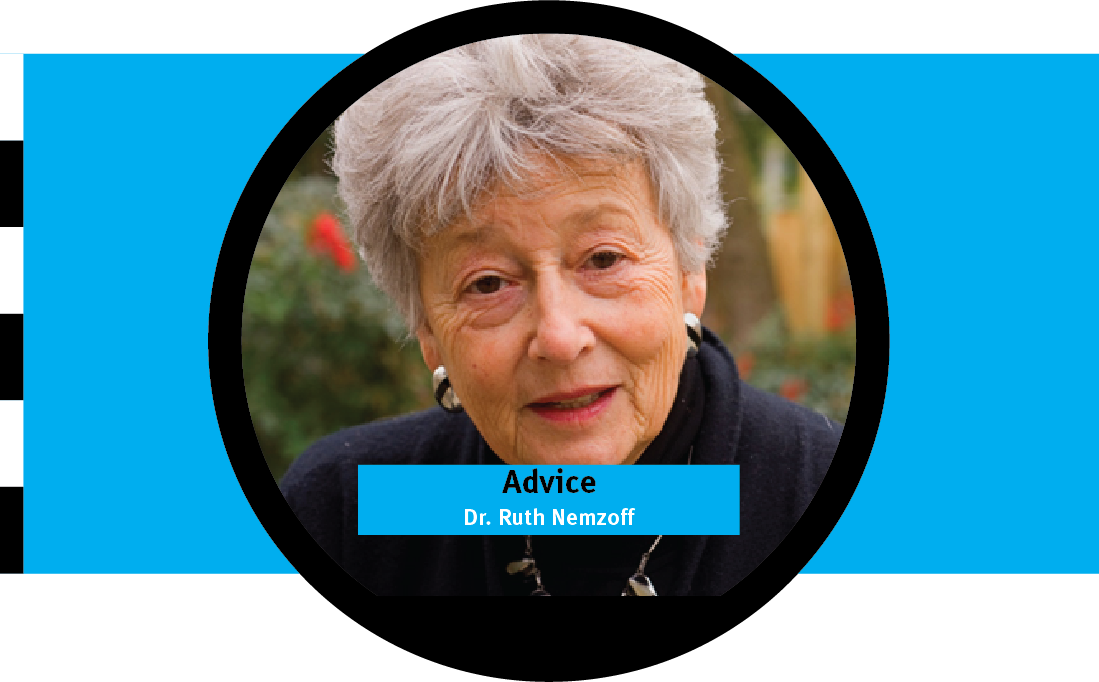Q: We sent our daughter to Jewish Day school and to Zionist camps. During this past winter, she was one of the leaders on her college campus supporting Israel’s right to exist. We are very proud of her for standing up for her beliefs. Of course, we were worried about her, but she kept assuring us that, at least on her campus, the protests were not violent. She will graduate this year and would like to go to Israel to volunteer with an NGO to protect Arabs on the West Bank from Israeli settlers and the IDF. She clearly supports Israel, but feels strongly that the current government policies of letting the settlers harass the Arabs with impunity and letting the IDF detain Arabs for hours at checkpoints are against Israel’s moral code and such actions will eventually lead to Israel’s destruction.
We are unequivocal in our support of Israel, but are quite ambivalent about how we feel about many of the policies of the current government. We are uncertain of what is the best policy for Israel’s security. We wonder if Israel would be safest if it just gave back the land gained in the 1967 war, or whether such an action would not satisfy the Palestinians? We are concerned with what would happen to the Jewish settlers. We are definitely not happy with some of the actions of the Jewish settlers on the West Bank, but we are uncertain if containing the Arabs is the best solution to the problem. Is it possible to be conciliatory with those who want Israel destroyed? We cannot find the proper way to both support Israel and oppose its policies. It is hard to support our daughter when we cannot decide if we approve of her actions or not. Moreover, we are terrified that our daughter will be harmed in her effort to mitigate unfair treatment of Arabs in Israel. We want to discourage her from going. We are frightened the situation might escalate. We have explained our concerns to her. However, we cannot dissuade her. Do you have any ideas to help us with this dilemma?
A: So many of us are struggling with the question you raise. How do we support Israel’s right to exist and, at the same time, help change the policies of the current government? I am sure this is small comfort for your personal situation. Your daughter is to be commended for finding a way that is comfortable for her to both defend and criticize Israel. Both you and your husband should be lauded for your honesty about your confusion.
As for how to convince your daughter, I don’t have any brilliant ideas. As a parent of four children and many grandchildren, I can, however, identify with your worries for her safety. Fortunately, you have a common ground on which to build a conversation since both generations have the same goal of helping Israel exist in harmony with its neighbors. You disagree on how to proceed toward peace. You are ahead of many families who cannot even broach the subject because the generations so vehemently disagree about the legitimacy of Israel’s place in the Middle East. As parents we encourage our children to think carefully and independently but do not know where that encouragement may lead. We do the best we can and our children will use what we taught them in their own way.
It’s unrealistic for you to expect that your child will forever do as you say just as it is unrealistic for her to expect that you will always agree with her. You can continue to talk with her and to share your concerns, but it’s unlikely that you will change her thinking. You might find some solace in the fact that typically parents are much more cautious than children. During the Civil Rights movement of the 60s many parents tried to dissuade their children from going south to register voters. The worries were legitimate. Three of the activists were killed but thousands were successful in their mission. More recently, during COVID, when young people wanted to march in protest supporting Black Lives Matter, they met with parents’ discouragement and fears that they would get COVID, get hurt, or get jailed. In these cases, most participants survived. You who were so proud of your daughter for protesting at college expressed your fears for her. Perhaps the job of the parents is to worry and warn and the job of grown children is to consider the dangers and make their own decisions.
The best you can do at this time is as you have done, explain your thoughts, uncertainties and emotions. Continue to try to figure out how you might act to mitigate your ambivalence, continue to learn, and talk with others with others with whom you disagree. Share your learnings with your child and encourage her to share hers. Whatever you do, let her know that you are educating yourselves and let her know what actions you are taking. Be clear about what you are willing and not willing to do to help her realize her plan. Your daughter may be disappointed that you are not fully supportive of her current decision. One of the consequences of making decisions is that we often displease others.
While you might be able to suggest other seemingly safer volunteer options such as working with the kibbutzim which were devastated and still want to somehow come to a solution with the Palestinians. Whatever you suggest, assure your child you love her and will continue to do so. It is unlikely you will be able to completely change her plans. I hope that your underlying love is understood even if you continue to disagree.
Your daughter is a committed and courageous young woman and for that you can be proud.


